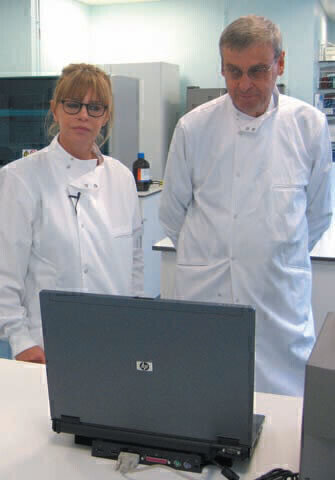News
Facing the Threat of Acquired Infections
Oct 23 2009
Professor Richard James, Director of the Centre for Healthcare Associated Infections (CHAI) at The University of Nottingham, has said that the health service is not ready to deal with new strains of MRSA which are currently causing infections in UK hospitals and which are also circulating within the wider community. On July 21 he was joined by actress Leslie Ash, Patron of CHAI, to raise awareness of the threat posed by community-associated methicillin-resistant Staphylococus aureus - CA-MRSA– through the launch of an appeal to fund development of rapid, economical diagnosis tests for MRSA and C.diff in NHS hospitals; and the use of new technology to track the evolution of superbugs which can attack people weakened by viruses such as Swine Flu and trigger a form of pneumonia which can kill in 72 hours.
The situation has been made worse, he commented, by the under-funding of hospital microbiology laboratories which has limited their ability to rapidly detect CA-MRSA strains, and by the paucity of new antibiotics
to treat these infections — only two have been introduced in the last 25 years. “It took the UK over 10 years to start to get to grips with the problems of hospital MRSA infections and we are still fighting this war. We are not set up and ready to fight the next one against CA-MRSA infections which can cause serious infections in the young and healthy in the community.”
Having faced a long and difficult recovery after contracting MSSA, a strain related to MRSA Leslie Ash, said: “From my own personal experience infections like these can change your life forever. It took a lot of support from those I love to regain any sense of normality. That is why I am proud to be patron of CHAI. I urge people to join the fight against deadly hospital superbugs by supporting the new £1.4 million fundraising campaign.”
Professor James added: “The concern is that exposure of a population with a high carriage rate of CA-MRSA, community based MRSA to a flu pandemic will trigger a large number of necrotizing pneumonias that would swamp the health service. It has been suggested by several authors that many of the deaths caused by the 1918 Spanish flu were actually caused by Staph aureus and not the virus.”
Digital Edition
Lab Asia Dec 2025
December 2025
Chromatography Articles- Cutting-edge sample preparation tools help laboratories to stay ahead of the curveMass Spectrometry & Spectroscopy Articles- Unlocking the complexity of metabolomics: Pushi...
View all digital editions
Events
Jan 21 2026 Tokyo, Japan
Jan 28 2026 Tokyo, Japan
Jan 29 2026 New Delhi, India
Feb 07 2026 Boston, MA, USA
Asia Pharma Expo/Asia Lab Expo
Feb 12 2026 Dhaka, Bangladesh




















